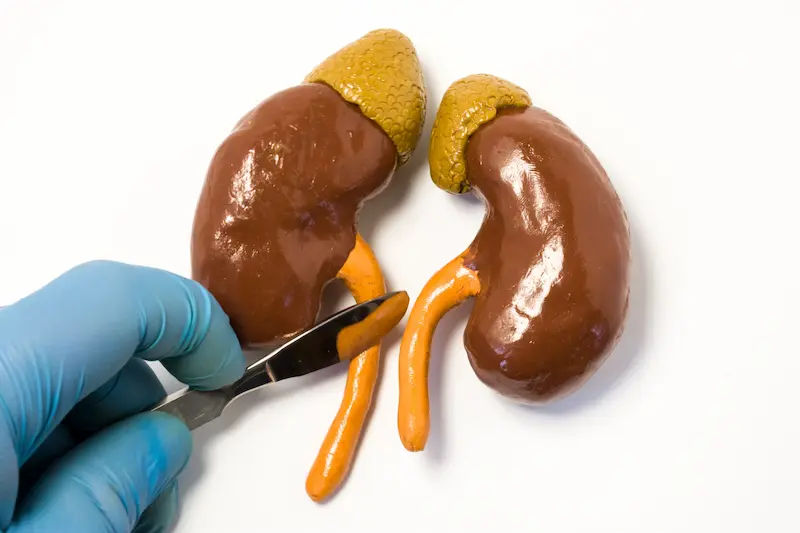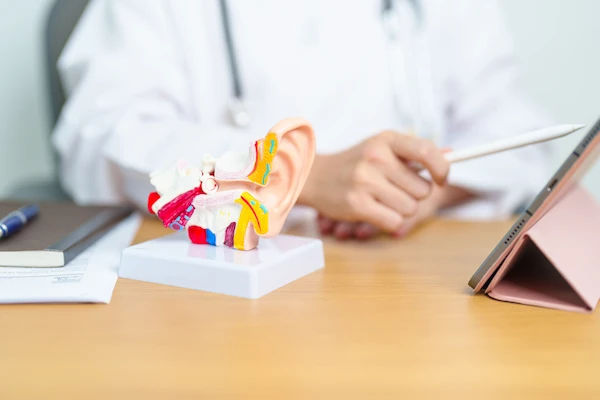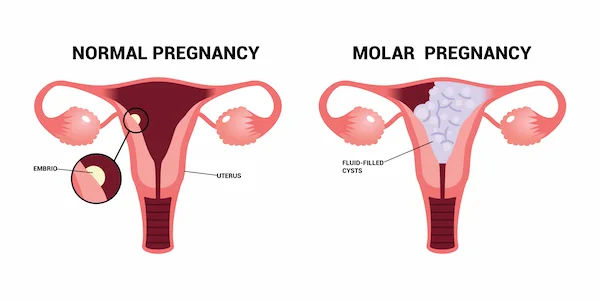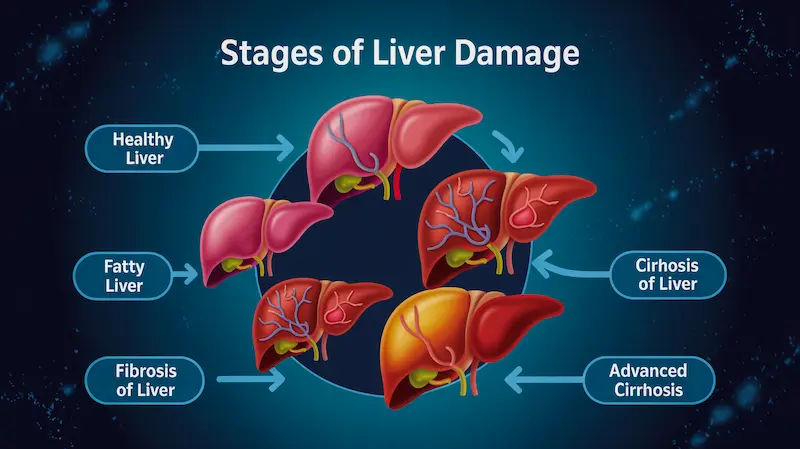Understanding Hemophilia: Symptoms, Causes, and Treatment
Learn about hemophilia, its symptoms, causes, diagnosis, and treatment options. Understand types, risk factors, and management tips for living a healthy, active life with this bleeding disorder.

Written by Dr. Rohinipriyanka Pondugula
Reviewed by Dr. D Bhanu Prakash MBBS, AFIH, Advanced certificate in critical care medicine, Fellowship in critical care medicine
Last updated on 13th Jan, 2026

Living with a bleeding disorder like hemophilia can be challenging, but with the right knowledge and care, patients can lead fulfilling lives. This article aims to simplify what hemophilia is, its symptoms, causes, and available treatments; so you or your loved ones can manage the condition effectively.
What Is Hemophilia?
Hemophilia is a rare genetic disorder where the blood does not clot properly due to a lack of certain clotting proteins (called clotting factors). This means even minor injuries can lead to prolonged bleeding, and internal bleeding can occur without an obvious cause.
There are two main types:
- Hemophilia A (Factor VIII deficiency) – The most common type.
- Hemophilia B (Factor IX deficiency, also called Christmas disease) – Less common.
Hemophilia mostly affects males, but females can be carriers and may experience mild symptoms.
Symptoms of Hemophilia
The severity of symptoms depends on how low the clotting factor levels are:
Mild Hemophilia
- Excessive bleeding after surgery, dental work, or injury.
- Occasional nosebleeds.
Moderate Hemophilia
- Prolonged bleeding from minor cuts.
- Easy bruising.
- Bleeding into joints (hemarthrosis), causing pain and swelling.
Severe Hemophilia
- Spontaneous bleeding (without injury) into muscles and joints.
- Frequent nosebleeds.
- Blood in urine or stool.
- Heavy bleeding after vaccinations or minor procedures.
In babies, signs may include:
- Excessive bleeding after circumcision.
- Unexplained bruising when they start crawling or walking.
If you notice any of these symptoms, consult a doctor for proper diagnosis.
What Causes Hemophilia?
Hemophilia is usually inherited, meaning it is passed down from parents to children through genes. The defective gene is located on the X chromosome, which is why males (who have only one X chromosome) are more likely to have hemophilia, while females (with two X chromosomes) are usually carriers.
In rare cases, hemophilia can develop later in life (acquired hemophilia) due to the immune system attacking clotting factors. This can happen in older adults, pregnant women, or people with autoimmune diseases.
How Does Hemophilia Affect Health?
- Without proper treatment, hemophilia can lead to:
- Joint damage – Repeated bleeding into joints (knees, elbows, ankles) can cause chronic pain and arthritis.
- Muscle bleeding – Can lead to swelling, pain, and restricted movement.
- Internal bleeding – Bleeding in the brain or organs can be life-threatening.
- Infections – If blood transfusions or clotting factor treatments were used before the 1990s, there was a risk of infections like HIV or hepatitis. Modern treatments are much safer.
Diagnosis and Treatment
If hemophilia is suspected, doctors will:
- Check family history.
- Conduct blood tests to measure clotting factor levels.
Get Your Health Assessed
Treatment Options
1. Clotting Factor Replacement Therapy
- The main treatment involves injecting the missing clotting factor (Factor VIII or IX) into the bloodstream.
- Can be given on-demand (after a bleed) or prophylactically (regularly to prevent bleeds).
2. Gene Therapy (Newer Option)
- A one-time treatment that helps the body produce its own clotting factor.
3. Medications
- Desmopressin (DDAVP) – Helps release stored clotting factors in mild hemophilia A.
- Antifibrinolytics (e.g., tranexamic acid) – Helps prevent blood clots from breaking down.
4. First Aid for Bleeding Episodes
R.I.C.E. Method:
- Rest the affected area.
- Ice to reduce swelling.
- Compression with a bandage.
- Elevation to slow bleeding.
Consult an Endocrinologist for the best advice
Living with Hemophilia: Tips for Better Management
1. Stay Active (Safely)
- Low-impact exercises like swimming, walking, and cycling strengthen muscles and protect joints.
- Avoid contact sports (football, wrestling) that may cause injuries.
2. Maintain a Healthy Diet
- Eat iron-rich foods (leafy greens, lean meats) to prevent anemia from blood loss.
- Stay hydrated to support circulation.
3. Regular Check-ups
- Visit a hematologist (blood specialist) regularly.
- Get vaccinated (especially Hepatitis A & B) to prevent infections.
4. Emergency Preparedness
- Always carry a medical ID card stating you have hemophilia.
- Keep clotting factor medication handy when traveling.
5. Mental Health Support
- Living with a chronic condition can be stressful. Seek support from family, friends, or counseling.
When to Seek Immediate Help?
Go to the hospital if you experience:
- Severe headache or vomiting (possible brain bleed).
- Sudden swelling/pain in joints or muscles.
- Uncontrolled bleeding after an injury.
Can Hemophilia Be Cured?
Currently, there is no cure, but with proper treatment, people with hemophilia can live long, active lives. Gene therapy shows promising results in reducing bleeding episodes.
Need Expert Help?
If you or a loved one has symptoms of hemophilia, consult a specialist for proper diagnosis and treatment. You can easily book a consultation or schedule a blood test through Apollo 24|7 for expert care.
Final Thoughts
Hemophilia requires lifelong management, but advances in medicine have made it easier than ever to control. With the right treatment, precautions, and support, patients can enjoy a good quality of life. Stay informed, stay safe, and don’t hesitate to reach out to healthcare professionals for guidance.
Consult an Endocrinologist for the best advice
Consult an Endocrinologist for the best advice

Dr. Anand Ravi
General Physician
2 Years • MBBS
Bengaluru
PRESTIGE SHANTHINIKETAN - SOCIETY CLINIC, Bengaluru

Dr. E Prabhakar Sastry
General Physician/ Internal Medicine Specialist
40 Years • MD(Internal Medicine)
Manikonda Jagir
Apollo Clinic, Manikonda, Manikonda Jagir
(150+ Patients)

Dr. Shruthi B
Endocrinologist
20 Years • MBBS,MD ( GEN MED) DM (ENDOCRIONOLOGY)
Bengaluru
Apollo Clinic, JP nagar, Bengaluru

Dr. Arunava Ghosh
General Physician/ Internal Medicine Specialist
10 Years • MBBS,MD(GENL.MED.),DM(ENDOCRINOLOGY)
Kolkata
VDC Clinic, Kolkata
Dr. Kiran Kumar Pasam
Endocrinologist
12 Years • MBBS, MD(General Medicine), DM (Endocrinology)
Hyderabad
Dr Kiran Kumar Pasam, Hyderabad
(25+ Patients)
Consult an Endocrinologist for the best advice

Dr. Anand Ravi
General Physician
2 Years • MBBS
Bengaluru
PRESTIGE SHANTHINIKETAN - SOCIETY CLINIC, Bengaluru

Dr. E Prabhakar Sastry
General Physician/ Internal Medicine Specialist
40 Years • MD(Internal Medicine)
Manikonda Jagir
Apollo Clinic, Manikonda, Manikonda Jagir
(150+ Patients)

Dr. Shruthi B
Endocrinologist
20 Years • MBBS,MD ( GEN MED) DM (ENDOCRIONOLOGY)
Bengaluru
Apollo Clinic, JP nagar, Bengaluru

Dr. Arunava Ghosh
General Physician/ Internal Medicine Specialist
10 Years • MBBS,MD(GENL.MED.),DM(ENDOCRINOLOGY)
Kolkata
VDC Clinic, Kolkata
Dr. Kiran Kumar Pasam
Endocrinologist
12 Years • MBBS, MD(General Medicine), DM (Endocrinology)
Hyderabad
Dr Kiran Kumar Pasam, Hyderabad
(25+ Patients)





